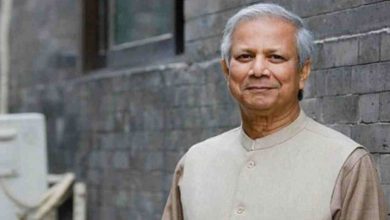Celtic

Introduction to Celtic Culture
Celtic The Celtic civilization stands as a testament to the rich tapestry of European history. With its origins shrouded in antiquity, the Celts left an indelible mark on the lands they inhabited, influencing art, language, religion, and societal structures. Exploring the depths of Celtic culture unveils a fascinating journey through time, filled with tales of bravery, artistic brilliance, and spiritual depth
Origins of the Celts
Tracing the roots of the Celts leads to a complex mosaic of historical narratives. Scholars suggest a migration pattern that originated in central Europe, spreading across the continent over millennia. These migrations shaped the diverse Celtic tribes that eventually settled in regions such as Ireland, Scotland, Wales, Brittany, and parts of Spain and France. Celtic
Celtic Society and Social Structure
Central to Celtic society was the concept of tribal organization. Each tribe operated under its own chieftain, with a hierarchical structure that encompassed warriors, craftsmen, and farmers. At the heart of Celtic society were the Druids, revered as spiritual leaders, judges, and keepers of knowledge.
Religion and Beliefs
The Celtic pantheon comprised a myriad of gods and goddesses, each associated with various aspects of nature and human endeavors. Rituals and ceremonies played a significant role in Celtic religious practices, often involving offerings, sacrifices, and seasonal celebrations tied to the cycles of the natural world. Celtic
Art and Craftsmanship
Celtic art is renowned for its intricate designs and symbolic motifs, found in artifacts ranging from jewelry to weaponry. The interlacing patterns and zoomorphic imagery reflect a deep connection to nature and the spiritual realm, showcasing the artistic prowess of the Celtic people.
Language and Literature
The Celtic languages, including Gaelic, Welsh, and Breton, served as the linguistic backbone of Celtic culture. Literary traditions thrived, producing epic tales, poetry, and mythological sagas that were passed down through oral tradition for generations. Celtic
Celtic Influence on Modern Culture
The influence of Celtic culture reverberates through modern society, evident in music, literature, and art. Revival movements seek to preserve and celebrate Celtic heritage, ensuring that its legacy endures for future generations.
Archaeological Sites and Discoveries
Archaeological excavations have unearthed a wealth of Celtic artifacts, shedding light on ancient customs and practices. Sites such as Tara in Ireland and the Celtic oppida of Gaul offer glimpses into the lives of the Celtic people. Celtic
Challenges to Celtic Studies
Despite the richness of Celtic culture, scholars face challenges due to the lack of written records and the need for interpretation of archaeological findings. Piecing together the puzzle of Celtic history requires meticulous research and interdisciplinary collaboration.
Celtic Mythology and Legends
Celtic mythology is replete with tales of heroic deeds, mystical creatures, and otherworldly realms. These myths continue to captivate audiences worldwide, influencing literature, art, and popular culture. Celtic
Celtic Festivals and Celebrations
Throughout the Celtic calendar, festivals and celebrations marked key moments in the agricultural and spiritual cycles. Events such as Samhain and Beltane were occasions for feasting, storytelling, and honoring the gods.
Celtic Symbols and Their Meanings
Symbols such as the Celtic knot, triskele, and shamrock carry profound meanings deeply rooted in Celtic mythology and folklore. These symbols serve as reminders of the interconnectedness of all things and the eternal cycle of life. Celtic
Celtic Warriors and Warfare
The Celts were renowned warriors, feared for their ferocity and skill in battle. Their warfare tactics and distinctive weaponry, including the iconic longsword and chariot, left an indelible mark on military history.
Decline of Celtic Civilization
The decline of Celtic civilization was precipitated by factors such as Roman conquest, internal conflicts, and the spread of Christianity. Despite this, the legacy of the Celts lives on in the cultural heritage of Celtic nations and the enduring spirit of its people. Celtic
Conclusion
In conclusion, the story of the Celts is one of resilience, creativity, and spiritual depth. From their origins in ancient Europe to their enduring legacy in modern times, the Celts continue to inspire awe and fascination. By preserving and celebrating Celtic culture, we honor the rich tapestry of human history and ensure that its treasures are passed down to future generations.
Celtic
FAQs (Celtic)
What were the major Celtic festivals?
The major Celtic festivals included Samhain, Beltane, Imbolc, and Lughnasadh.
What is the significance of Celtic symbols?
Celtic symbols carry deep spiritual and cultural meanings, often representing concepts such as unity, eternity, and protection.
Did the Celts have a written language?
While the Celts had a rich oral tradition, they did not possess a standardized written language until later periods.
What caused the decline of Celtic civilization?
The decline of Celtic civilization was influenced by factors such as Roman conquest, internal conflicts, and the spread of Christianity.
How did the Celts influence modern culture?
The Celts influenced modern culture through their art, music, literature, and spiritual traditions, which continue to resonate in various forms today.



